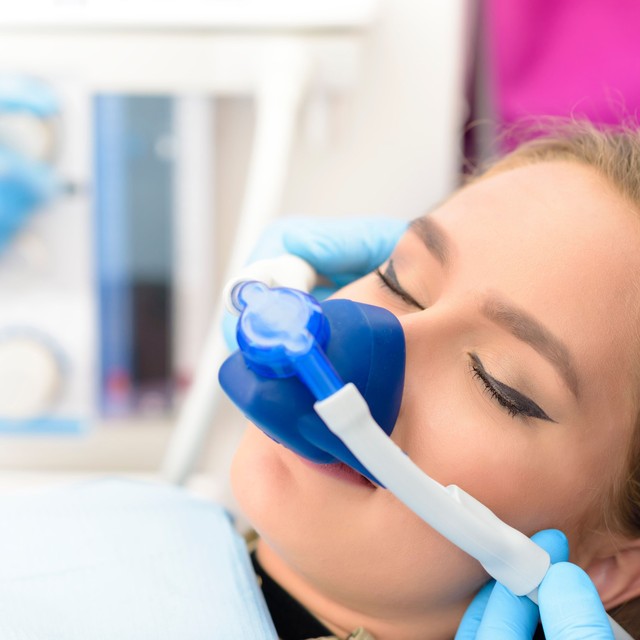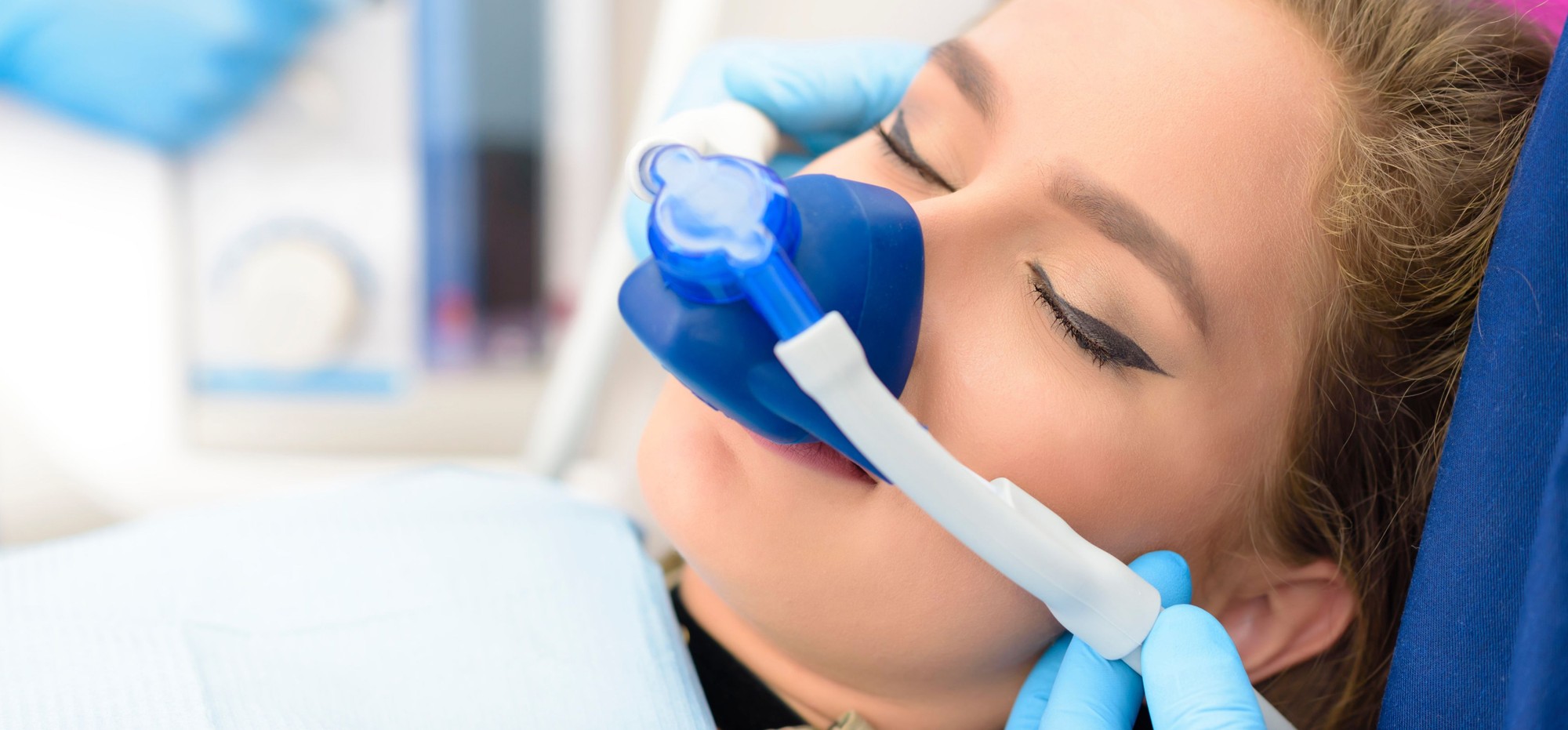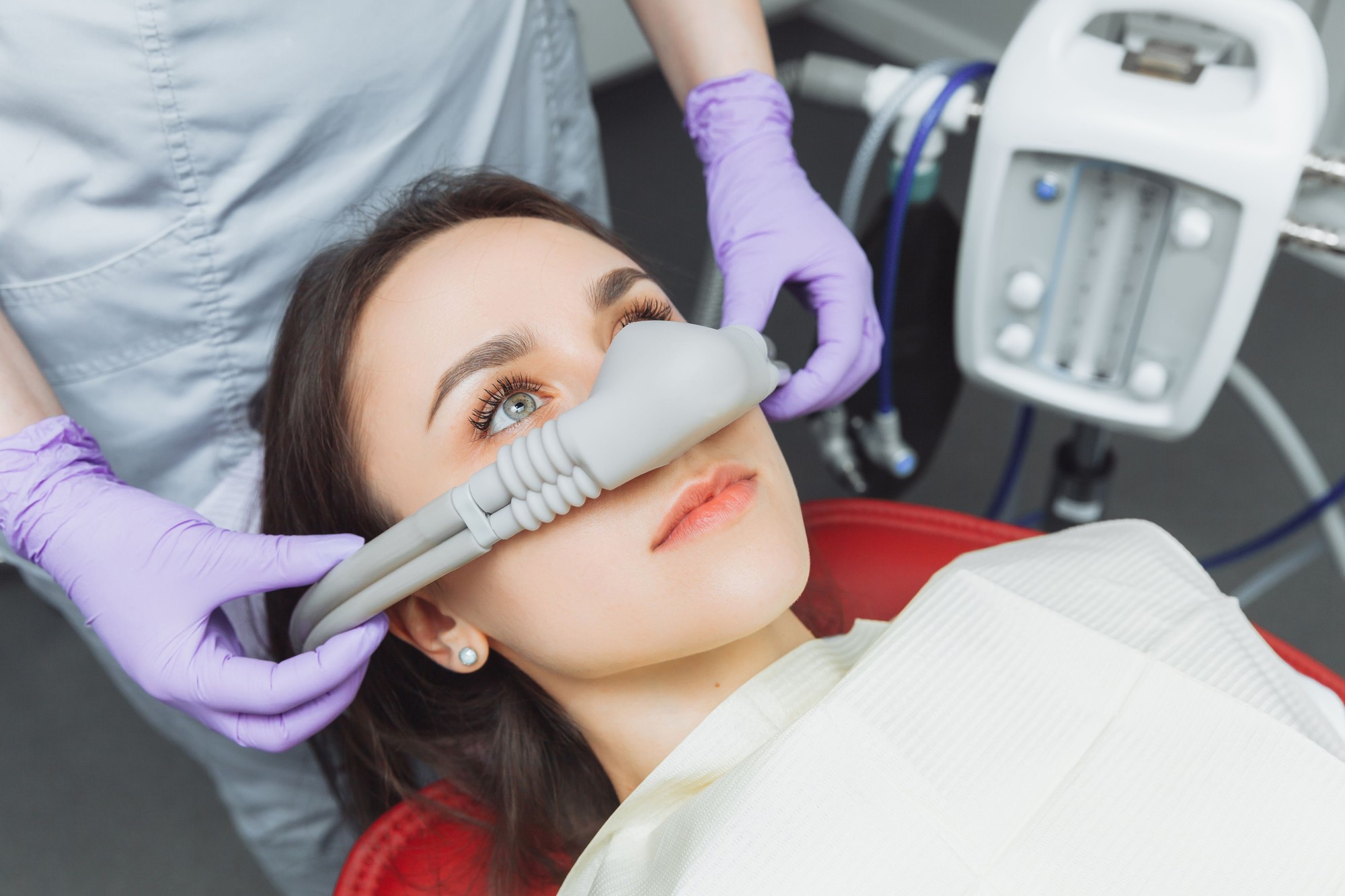Early in her distinguished career, Dr. Allala encountered patients so overwhelmed by dental anxiety that a simple cleaning could bring them to tears. Many patients are so embarrassed by dental anxiety that they try to tough it out instead of letting the dentist know how challenging it is for them to come in for dental care. Worse yet, some anxious patients don’t go to the dentist until they have a dental emergency. Please let us know if you experience dental anxiety. We meet anxiety with compassion and care at Serenity Advanced Dentistry and are a judgment-free zone.
Dental anxiety is a genuine issue, more than 40% of people have at least a mild form, and 12% have acute anxiety. Witnessing patients experiencing distress so severe that a teeth cleaning could leave them in tears was heartbreaking. She knew there had to be a better way to help patients before they were in a full-blown oral health crisis; she decided to focus her practice on providing dental sedation for those patients with dental anxiety. We also support patients who experience sensory overload by providing sensory-friendly teen and adult dental services. There is no shame in having a fear of the dentist; we understand completely and are here to support you at every step.

Why Sedation at Serenity
There is a good reason Serenity is a part of our dental practice name; we specialize in delivering dental care in a calm and tranquil manner combined with the best sedation options available in dentistry today. Dr. Allala has years of experience providing the highest quality dental services to patients with mild, moderate, and severe dental anxiety. No matter how intense your dental anxiety is, we offer an appropriate level of sedation to get you through the fear and take care of any dental treatments you need. We also provide extended appointments when necessary to minimize the number of visits required to complete the services needed to restore your dental health.
Not all dentists can offer every level of dental sedation. Additional education is required, and rigorous testing must be passed for a dentist to be authorized to provide general sedation. We have a dental anesthesiologist available for those patients who need deep sedation for more extensive treatments or due to unmanageable distress.
For any patient who fears dental treatment to the point that it interferes with their ability to visit the dentist because of dental anxiety, Dr. Allala is the dentist for you. We can even provide oral sedation that you take before your appointment, so the entire process is more tolerable. Don't let anxiety sabotage your oral health. Call us today; together, we will overcome your dental distress and get you smiling again!
Types of Sedation at Serenity Advanced Dentistry
Nitrous Oxide aka Laughing Gas
Nitrous Oxide, also known as laughing gas, is considered minimal sedation. Safely used by dentists since 1844, Nitrous Oxide is the original dental sedation option. The slightly sweet-smelling gas is mixed with oxygen and inhaled through a small mask that fits over your nose. When inhaled, Nitrous Oxide produces a relaxed, calm, and sometimes euphoric feeling. Some people feel somewhat silly and get the giggles, hence the nickname 'laughing gas.'
The effects are almost instant, and one of the most significant benefits is that they wear off in about five minutes once the dentist removes the mask. Nitrous Oxide does diminish sensitivity to pain, but the dentist will still use a local anesthetic when doing a procedure to ensure that you are completely comfortable for the duration of the treatment. With this type of sedation, you can drive yourself home from your dental visit without lingering effects, making it highly convenient. For many patients, this level of sedation is sufficient to enter into a relaxed enough state to have simple procedures such as cleanings, x-rays, or small fillings done.
Oral Sedation
Moderate sedation is achieved by oral medications and is the level commonly used for the cleanings of sensitive patients, filling cavities, tooth extractions, dental implants, and root canals. Dr. Allala will work with you to determine the level of sedation best suits your specific needs.
Moderate sedation is sometimes called twilight or conscious sedation. The dentist will provide an oral medication and specific instructions on when to take it before your appointment. There are several medications for the dentist to choose from, like Ativan, Valium, Versed, or Halcion. You will feel very relaxed but still be able to answer questions and respond to directions. You may actually even dose for a few minutes but can be easily woken by a gentle shake or tap on the shoulder. Breathing is not affected so that patients can breathe on their own. The effects of oral sedation will last for several hours. You will not be able to drive to or from your appointment with this form of sedation, so please plan accordingly.
Deep Sedation
The highest level of sedation is deep sedation. For this level, we have a dental anesthesiologist available to ensure patient comfort and safety. Medications are administered through an IV to give precise control over the level of sedation during treatment. With deep sedation, you will feel very dreamy, fall asleep, and remain asleep for the procedure's duration. While you are not completely unconscious, it is harder to arouse you than with moderate sedation. Patients can breathe spontaneously with this level of sedation, so you will not require a breathing tube. You will not be able to respond to verbal commands, and after the procedure, you will have little to no memory of the treatment. You will not be fully conscious until the medication wears off or the anesthesiologist gives you medications to reverse sedation. This level of sedation is usually recommended for complex oral surgeries such as wisdom teeth or other complicated extractions but may be used for patients with significant dental anxiety.
General Sedation
General anesthesia is the sedation level that most people think about for medical surgeries. Some dental practices advertise sleep sedation, but they are actually referring to the twilight sleep of moderate sedation. You will be fully asleep under general anesthesia, just like you would for medical surgery. General anesthesia is administered through an IV by a highly trained dental anesthesiologist who remains by your side during the entire procedure to monitor you for the proper level of sedation and patient safety. Because of the level of sedation, you will need assistance with breathing. The anesthesiologist will insert an endotracheal tube that will remain in place until the sedation is reversed with medication and you are breathing on your own again.
The office is equipped with special safety and monitoring equipment to enable this type of sedation.
General sedation is not available at most dental offices, the office must be inspected and approved, and the provider must undergo rigorous accreditation to be allowed to provide this service safely. We are proud to offer this level of service to our patients.



